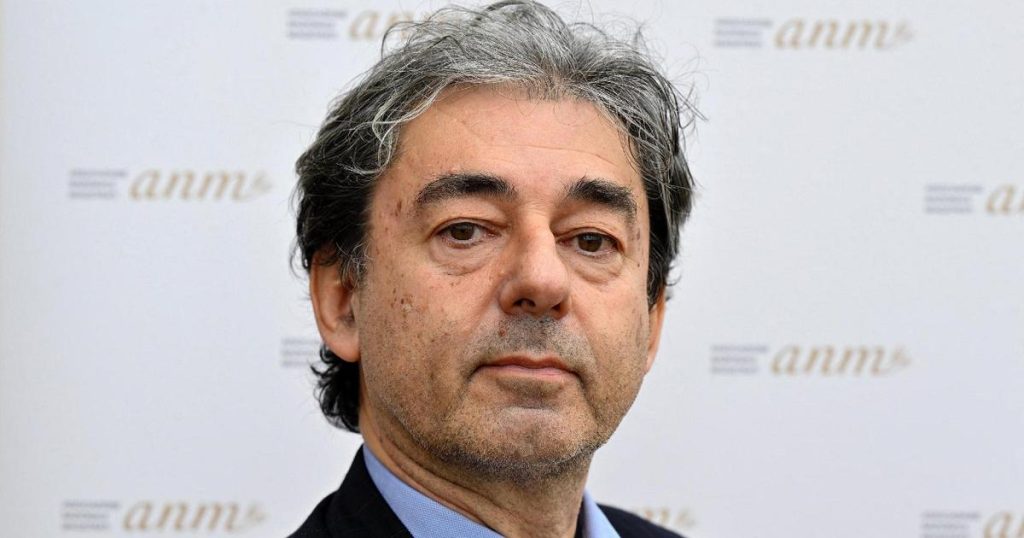A New Era of Dialogue: The National Magistrates Association and the Government
The recent elections within the National Magistrates Association (Anm) have brought a breath of fresh air to the historically strained relationship between the judiciary and the Italian government. The new leadership, headed by President Cesare Parodi, has opened the door to cautious dialogue, signaling a potential shift in the dynamics between the two institutions. While the Anm has shown willingness to engage with Prime Minister Giorgia Meloni, it has also made it clear that this dialogue will be conducted without compromise. The association’s stance is firm, reflecting the judiciary’s commitment to its principles and independence.
Prime Minister Meloni’s Olive Branch
Prime Minister Giorgia Meloni has responded positively to the Anm’s overtures, expressing a desire to resume constructive discussions on key issues. Her prompt response to the request for a meeting has been interpreted as a significant gesture, indicating a willingness to address the concerns of the judiciary. President Parodi has described this as a “novelty of relevance,” acknowledging the potential for a new chapter in relations between the government and the magistrates. However, the Anm has emphasized that any dialogue must be conducted with clarity, firmness, and without concessions, ensuring that the judiciary’s autonomy and independence are not undermined.
The Planned Strike and Its Significance
Despite the opening of dialogue, the Anm has reaffirmed its commitment to a nationwide strike scheduled for February 27. This strike is part of a broader protest against proposed reforms to the judiciary, particularly the controversial project to separate judicial careers. The strike has been framed by the Anm as a historic commitment to safeguarding judicial independence, rather than an act of defiance against the government. President Parodi has made it clear that the strike is not the end of the matter but rather the beginning of a prolonged campaign to protect the judiciary’s integrity.
The Government’s Mixed Signals
While the government has expressed a desire for dialogue, not all members of the ruling coalition have been equally supportive. Some, like the Undersecretary to the Presidency of the Council, Alfredo Mantovano, have called for an end to confrontations, suggesting a willingness to engage. However, others, such as Forza Italia, have been more critical, labeling the new president’s early statements as a “poor start.” These mixed signals highlight the complexity of the situation, with different factions within the government pulling in different directions. The Anm remains cautious, recognizing the challenges ahead but expressing optimism about the potential for meaningful dialogue.
Symbolic Gestures and Solidarity
In the lead-up to the strike, the Anm has called on its members to wear a tricolor badge on their judicial robes as a symbolic gesture of unity and resolve. This act is intended to convey the judiciary’s commitment to its principles and its determination to defend its independence. The badge serves as a visible reminder of the shared values of the magistrates and their collective action in the face of proposed reforms. While the gesture is symbolic, it underscores the Anm’s unwavering stance and its determination to mobilize support for its cause.
The Road Ahead: Challenges and Opportunities
The upcoming weeks will be pivotal in determining the direction of relations between the judiciary and the government. The Anm has made it clear that the strike is not an endpoint but a starting point for a broader campaign. President Parodi has acknowledged the potential challenges ahead, including the possibility of internal dissent and external criticism. However, he has also expressed confidence in the judiciary’s ability to navigate these challenges and emerge stronger. The government’s response to the strike and its willingness to engage in meaningful dialogue will be crucial in shaping the future of this relationship. While the path ahead is fraught with obstacles, there is a glimmer of hope that both sides can find common ground and work towards a solution that respects the principles of judicial independence and the rule of law.












